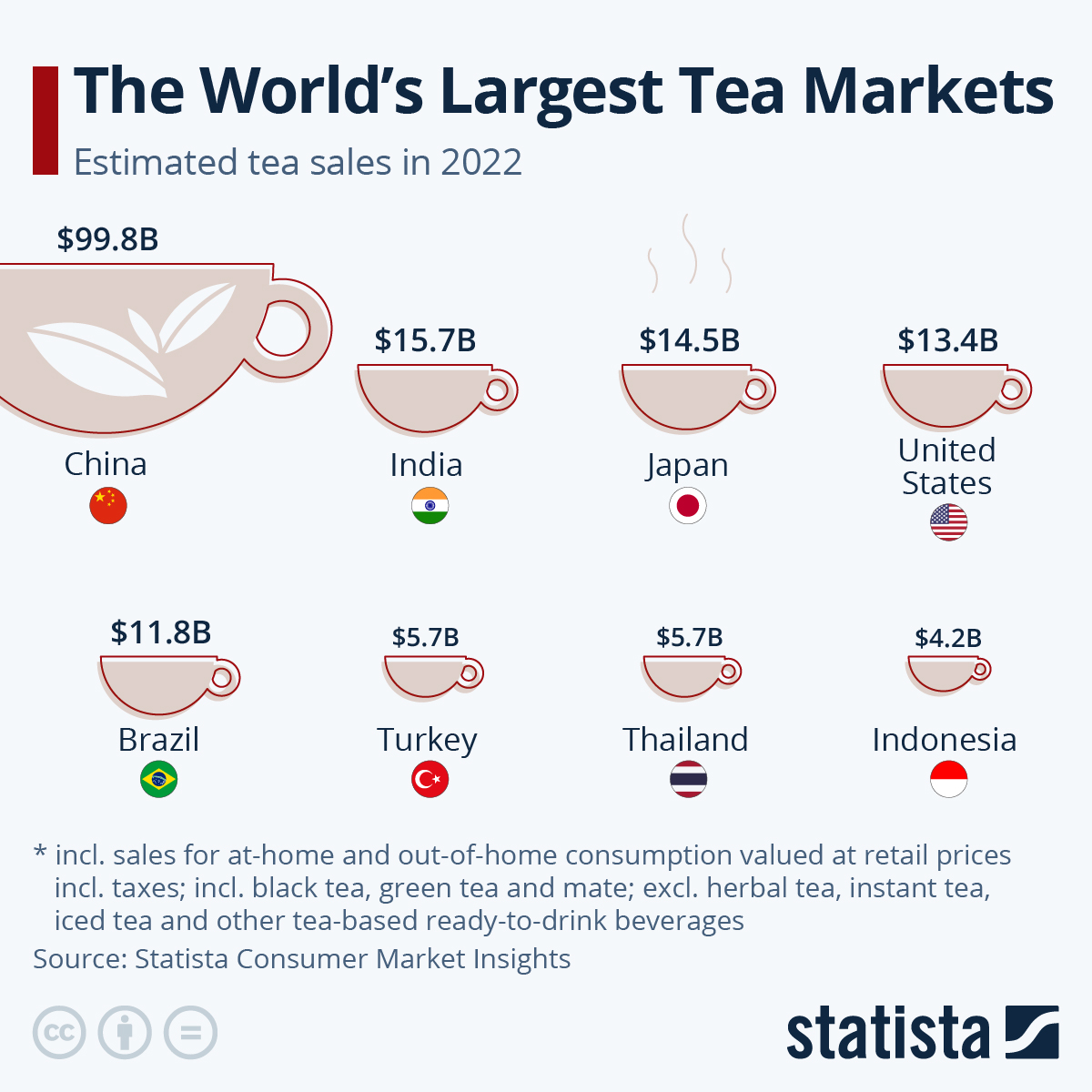Celebrated annually on May 21, International Tea Day honors the cultural and economic significance of tea around the world. The United Nations General Assembly designated this day in 2019, recognizing the long history of tea as a major source of employment and income for millions, especially in developing countries. The celebration aims to promote sustainable production and fair trade practices "from field to cup”, ensuring the well-being of workers and fair remuneration of producers. International Tea Day highlights tea's rich heritage, its role in various cultures, its health benefits as well as its contribution to economic development and poverty reduction.
Made from the Camellia sinesis plant, tea is the second most consumed drink in the world behind water with evidence suggesting that it has been consumed in China more than 5,000 years ago. With an estimated production volume of more than 14.5 million tonnes and exports worth more than $2 billion in 2022, China is the largest producer and exporter of tea leaves, but that's not all. According to Statista Market Insights, China is also by far the largest market for tea consumption in the world. Including sales for in-home and out-of-home consumption valued at retail prices, the Chinese tea market is estimated at $111 billion in 2023, more than six times the size of second-ranked India with total sales of $16.6 billion. Japan, the United States and Brazil round off the top five, with the latter likely included due to the popularity of mate in large parts of South America.










